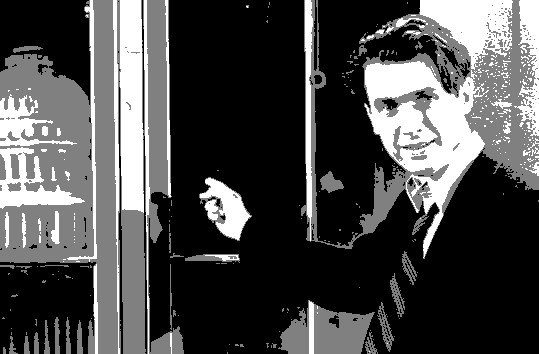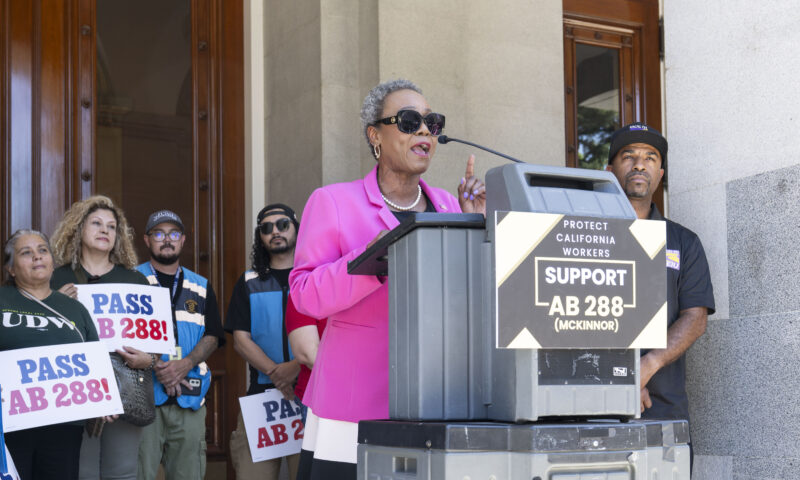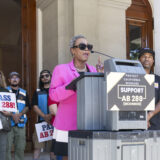Politics & Government
“Politics,” As Usual

For Americans today – particularly for bloggers, Senators, reporters and activists — it’s pretty much always a definitive rebuke to accuse someone of “acting politically.” Reflexive disdain for political motives is deeply rooted in our popular culture, which so often assumes that ethics is one thing, politics quite another. “You quit a profession you love for ethical reasons,” the President tells the main character on CBS’s Madam Secretary. “That makes you the least political person I know.”
But however culturally pervasive and recognizable this kind of disparagement may be – however tempting it is to call out someone for their political motives — there are reasons to do so sparingly.
To see why, it’s worth reflecting on two of the most striking recent instances in which base political motives have been alleged. Both the right and left agreed that Barack Obama’s decision to postpone executive action to reduce deportation of undocumented immigrants was unprincipled and political. Activists said the decision amounted to “playing politics” with families’ lives. And House Speaker John A. Boehner, from quite the other direction, agreed that the delay smacked of “raw politics.” Both were pointing to reports that Obama postponed action to help vulnerable Senate Democrats in midterm election fights.
A few weeks earlier, a different set of activists in Ferguson, Missouri responded to the police shooting of Michael Brown, an unarmed African-American teen. First they marched, then they registered voters in this majority-black city that has an overwhelmingly white government and police force. White conservatives did not care much for either approach. But they particularly objected to the voter registration. Republican Congressman Paul Ryan complained that activists were trying to “graft” their “policy initiatives” onto “this tragedy.” The executive director of the Missouri GOP called the registration effort “fanning the political flames.”
Clearly, such charges of “political” motivation mean different things to different people. Immigrant-rights activists meant that Obama should have responded to the problems of undocumented immigrants in a human, compassionate way — but instead he was motivated by electoral calculation. (The visceral anger behind this denunciation is partly explained by the Obama administration’s aggressive campaign of deportations.) Right-wing critics of the same decision weren’t much worried about the effect on immigrants. They saw it as an attempt to deceive and avoid the scrutiny of anti-immigration voters. And conservative critics of the registration drive in Ferguson thought that the activists were wrongly taking an ordinary incident of law-enforcement – nothing to see here! — and using it to rile people politically.
That conservative complaint about Ferguson points to the first reason to hesitate before denouncing an action as politically motivated. The thing is, Ryan et al. are basically right in their analysis (though wrong in their criticism). It is in the nature of many campaigns for equality, justice and empowerment to politicize matters many people don’t notice or take for granted – and to politicize people who are disillusioned and disengaged from public life. Politicizing what or who is not political now is a perfectly legitimate, indeed essential, tool for many activists. Immigrant-rights activists are doing it, too: Taking what some like to portray as an issue of crime and politically mobilizing people by showing them that it’s a question of power and equal political standing. And stirring such people to act commits us to political motivation in a related sense, one many people say they find troubling: basing decisions partly on strategic calculations about what can succeed and what can’t.
The second reason not to be too quick to level charges of “acting politically” brings us back to popular culture. Why do charges of political motivation resonate in American life? What cultural attitudes do they nourish? The answer, unfortunately, is that they feed on long-standing disengagement, lack of knowledge and cynicism about politics – sometimes, as well, a kind of self-satisfaction about being inactive, for being so much better than those political people over there.
This characteristic American attitude doesn’t just disdain venal, self-interested political motivation, but almost all political motivation. Of course, Frank and Claire Underwood, the central characters on the Netflix series, House of Cards, exemplify political motivation in one obvious sense: They are dastardly, conniving, insincere and ruthless. But viewers are invited, at least, to have some fun with them. Not so with other political actors — the few elected officials and activists who believe in something — whom the show disdains in a different way. They’re not portrayed as cold and deceitful, but as unbearably fatuous and easily manipulated. Saps.
The feeding of our tendency to disdain political action and political motivation is ultimately in tension with politicization in the very positive sense that I mentioned above: activating people who are disillusioned and disengaged from public life. Rather than energizing them or spurring them to think carefully about what they take for granted, it can make it easier for them to go on complacently as always. And that’s a potential cost worth weighing before criticizing those we think have done something wrong for being politically motivated.

-

 Latest NewsOctober 14, 2025
Latest NewsOctober 14, 2025People in ICE Custody Face Invasive Strip Searches After Visits With Loved Ones
-

 Column - State of InequalityOctober 9, 2025
Column - State of InequalityOctober 9, 2025California Joins New York in Trying to Fill a Void on Worker Protections
-

 Column - State of InequalityOctober 2, 2025
Column - State of InequalityOctober 2, 2025Deep-Blue California Is a National Leader in De Facto Public-School Segregation. Here’s Why…
-

 Column - California UncoveredOctober 14, 2025
Column - California UncoveredOctober 14, 2025‘They Just Took You Away’
-

 Dirty MoneyOctober 6, 2025
Dirty MoneyOctober 6, 2025On Louisiana’s Gulf Coast, Residents Fume as Insurers Hike Rates and Invest in Fossil Fuel Projects
-

 The SlickOctober 10, 2025
The SlickOctober 10, 2025It’s Brown And Burns Your Eyes. In Small-Town Texas, Clean Water Is Elusive.
-

 Striking BackOctober 15, 2025
Striking BackOctober 15, 2025Dollar Store Workers Fight to Improve Jobs, Even Without a Union
-

 Column - State of InequalityOctober 16, 2025
Column - State of InequalityOctober 16, 2025Five-Day Strike by Kaiser Permanente Workers Is About More Than Money

